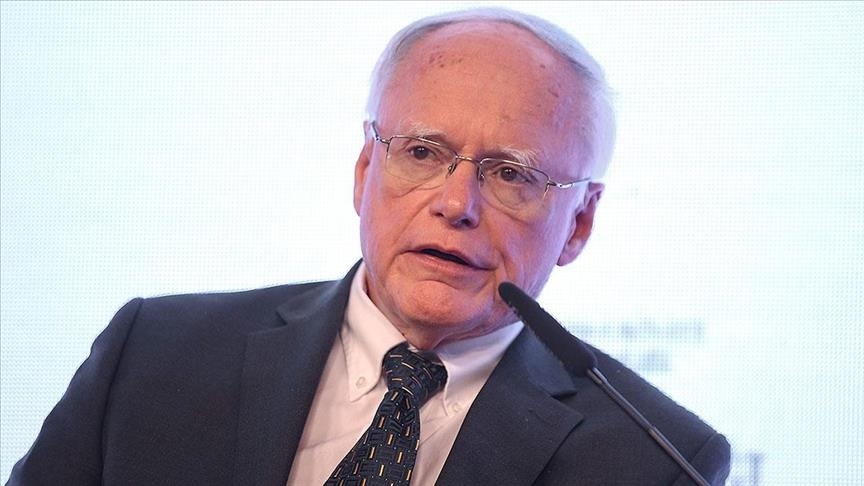
WASHINGTON
Though Turkish-US ties are not "very close" at the moment, six months from now they should improve, according to a former US ambassador to Ankara.
The two countries will maintain extensive ties, James Jeffrey told Anadolu Agency, explaining: "Right now the relationship is not very close ... I would say, let's look at this relationship in six months, I'm sure it's going to be better."
Jeffrey, who served as ambassador to Turkey in 2008-2010 and most recently as US envoy to Syria, said that though US President Joe Biden and Turkish President Recep Tayyip Erdogan have not spoken since Biden took office this January, the “two know each other very well" from contacts during the Obama administration.
Calling current ties between Turkey and the US “bad,” he added: “Again, it is an important relationship, it will not stop being one.”
“But it is less good than I've seen in the past, the trust and confidence of the two sides, both government-to-government and political leaders lower than I've ever seen."
US partnership in Syria with terrorist YPG/PKK
Asked about US ties with the terrorist YPG/PKK in Syria, Jeffrey said the US has a national security interest in defeating Daesh/ISIS in the region, and works with the YPG towards this end.
Turkey has long urged the US to sever its ties with the YPG/PKK, saying that using one terror group to defeat another makes no sense.
In its more than 35-year terror campaign against Turkey, the PKK – listed as a terrorist organization by Turkey, the US, and the EU – has been responsible for the deaths of at least 40,000 people, including women, children, and infants. The YPG is the group’s Syrian branch.
"The reason we went in (to Syria), was to fight Daesh, which was a dramatic threat not only to Turkey, not only to Iraq and Syria, and also to our Western European partners, and throughout the whole region," said Jeffrey.
"And the only partner we have on the ground that was fighting with us was the YPG," he added.
Turkey has said that the US should value its longtime NATO ally Turkey –the only NATO ally fighting Daesh/ISIS in Iraq and Syria – over a terrorist group.
Underlining that the US gave the YPG "no" promises on establishing a state, Jeffrey said that they have been "very careful" in dealing with local YPG leaders who call themselves the “local administration.”
"A referendum, democratic elections, and such, we support that,” said Jeffrey.
Saying that the US is not involved in local administration, he added: “You work out whatever deal you can make with the Syrian opposition for that matter, or with the Assad regime. That's your business. It's not us, we've made it very clear to everybody."
Turkey has fought against efforts by the YPG/PKK to form a terrorist corridor along its southern borders, saying the group terrorizes locals and threatens regional security.
‘Total agreement’ on Russian S-400s not possible
Jeffrey also argued the two sides could "never agree totally" on the issue of Turkey's purchase of Russian S-400 missile defense.
He said that from Turkey's side it is a sovereign decision, so they can say: "Why can't a sovereign state purchase weapons from another country?"
And from the US standpoint, it “is a violation of US law" to buy weapons from Russia and "a threat to one of our most important military, diplomatic programs," he said.
"Basically, I think the best way to fix this is to limit the damage," he concluded.
In 2017, when its protracted efforts to buy the Patriot air defense system from the US proved fruitless, Turkey signed a contract with Russia to acquire the S-400 system.
Last year the US imposed sanctions on Turkey over the weapons system, claiming it would be incompatible with NATO systems and would expose F-35 jets to possible Russian subterfuge.
Turkey, however, stressed that the S-400 would not be integrated into NATO systems and poses no threat to the alliance or its armament.
It has repeatedly urged a working group to clear up the technical compatibility issues.








